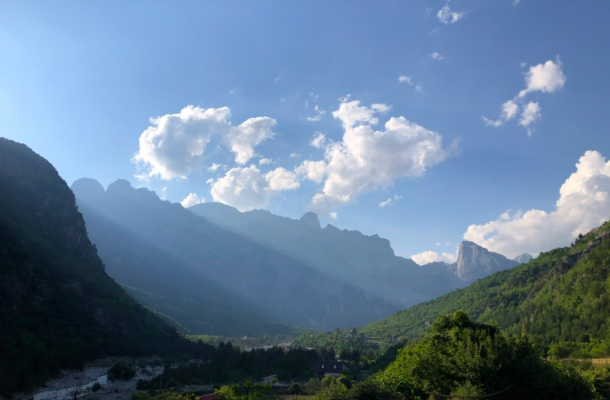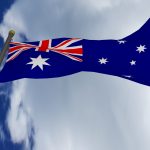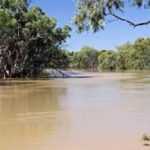An Australian in Albania

Albania is an emerging middle-income country that has, according to The World Bank, undergone quite an economic transformation in the decades that have passed since its prevailing communist regime collapsed.
Economic reform and foreign investment have allowed the country to develop, however, as I witnessed, many Albanians are still struggling in the grip of poverty, growing unemployment and corruption.
World Bank figures suggest that approximately 34.6% of Albanians are living on less than US $5.5 dollars per day. Despite this, I was struck by the prevailing kindness and generosity of the Albanians I encountered and their resilience in the face of economic and social adversity.
It is hard to imagine all the intricate differences between living in Australia and life in an emerging, post-communist country until you find yourself living it. The comparisons in the realities of daily life that you experience whilst travelling are, for me, what makes travel so exciting.
From the minute I landed in Tirana, Albania’s capital, my mind was constantly stimulated by seemingly mundane details, as the country appeared to be run on a completely different system of norms.
The first thing I noticed was that road rules are completely irrelevant in Albania. There are often no lanes and no standardized rule of law. This makes roundabouts a simultaneously fascinating and terrifying experience while incidents of driving on the wrong side of the road were too common to count.
The second thing I noticed was many lingering reminders of the communist regime that prevailed over Albania up until the early 90’s. The city of Tirana is littered with large communist-style apartment blocks as well as many shanty-style dwellings and has a distinctly gloomy atmosphere despite its urban sprawl.
There are also gas stations on practically every corner, and a quick google search told me that the largest oil and gas companies are predominantly owned by senior Government officials.
Once I ventured out of Tirana, the automotive theme seemed to continue. The utter volume of petrol stations in the country is astounding, as is the number of Mercedes Benz one finds on the road, they overwhelmingly outnumber any other model of car.
It is interesting to note that until the collapse of the communist regime, driving was strictly forbidden for the Albanian public, perhaps that has much to answer for with regard to their apparent love of all things automotive.
Touring Albania
I ended up embarking on what seemed like an unofficial four-day tour of the entire country, travelling from Tirana to Shkodra to Theth and then Himarë in the country’s south-coast.
Undergoing this journey, I came face-to-face with some of the stunning mountainous landscapes the country has to offer, as well as some utterly divine and relatively untouched coastal landscapes in Himarë.
Along the way I encountered a number of interesting Albanian quirks including many half-constructed, desolate buildings, as supposedly construction is put on hold for the summer, as well as a great number of buildings that appeared to be palatial replicas.
I also frequently came across people operating horse and donkey drawn carts, and others selling hot corn and fruit on the side of the road. The vast landscapes that Albania offers within a relatively small area of under 29,000 km2 is astounding and makes for highly stimulating travel.
If you intend to explore the country yourself, then more time would be desirable, but, perhaps surprisingly I would also warn against excessive pre-planning and booking.
As the locals told us, “Albanian-time” is a real phenomenon, and in more than once instance delays in pre-booked transportation and logistics, as well as differences in cultural understandings of time prevented us from getting the most out of our trip.
An adventure in Theth
By far the most enriching experience I had in the country was in the small mountainous village of Theth. My friends and I found ourselves stranded there after following the ill-planned logistics of a tour coordinator we had booked from Australia.
By chance we stumbled across some very kind and generous Albanians who invited us to shelter in their family-run guesthouse for the night and proceeded to cook us an Albanian feast.
It was this night that made the greatest impact on me. The young Albanian brothers who ran the Guesthouse with the help of other family members told us about their struggles in a country tainted by corruption.
They discussed the extortionate and unjustified university fees required to finish their degrees and requests of around 10,000 Euro from businesses in exchange for a job in the fields they had trained in forest engineering and business, respectively.
Their mother meanwhile described receiving a single piece of bread at the end of each day as payment for her services in a factory during the communist era. Our Albanian friends told us that due to the relatively poor quality of life in Albania in 2019 there are around 6 million Albanians living outside the country, with many of these sending money back home. Only about 3 million Albanians remain in the country of their birth.
Despite these tremendous economic and social hardships our newfound Albanian friends seemed joyful and eager to converse with us and learn all they could about Australia. My experiences in this relatively untouched country were deeply enriching and I was struck by the kindness and resilience of the people I encountered there.
Photo of the Theth Valley by Sophie Mayo.
Sophie Mayo is studying a Masters of International Relations at The University of Sydney. She is passionate about Australian foreign policy and is currently interning at Global Access Partners.













